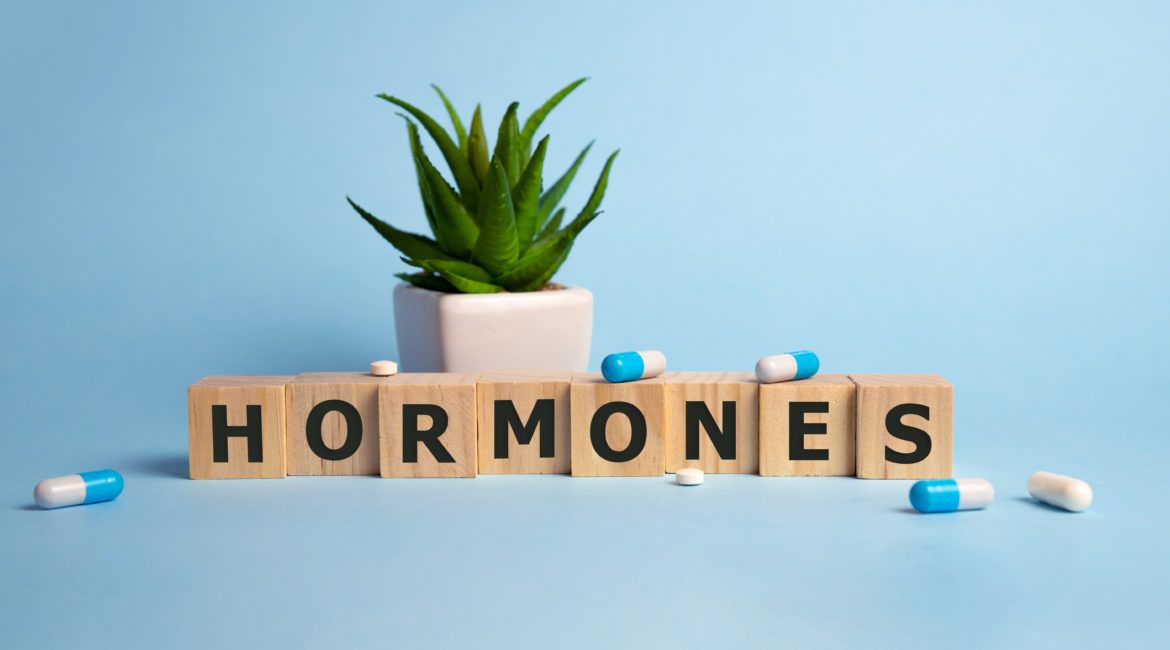Pre-menstrual-related mood swings. Birth control pills. And more.
Let’s just say, as women, we hear a lot about hormones during our lifetimes. But… what does that have to do with uterine fibroids? That is, do hormones hurt or help fibroids at all? And if so, which one is it?
Unfortunately, there’s no one simple answer. But don’t worry, that’s why we’re here to provide some clarity on the answers you both need and deserve…
How Hormones Have An Impact
“Estrogen and progesterone, two hormones that stimulate development of the uterine lining during each menstrual cycle in preparation for pregnancy, appear to promote the growth of fibroids,” according to the Fibroid Foundation. “Fibroids contain more estrogen and progesterone receptors than normal uterine muscle cells do.”
What’s more, “those with high levels of testosterone in their blood were 1.3 times more likely to develop uterine fibroids than those with low levels,” WebMD reports.
In other words, fluctuations in a woman’s hormone levels are capable of triggering uterine fibroid growth and/or the worsening of her symptoms. Additionally, fibroids often shrink in women after they have entered menopause as a result of the decrease in hormonal production that occurs during this stage of life.
Thus, hormone therapy may help patients to stabilize and balance their levels, thereby finding physical relief.
Heading Toward Hormone Therapy
“Hormone therapy is a nonsurgical treatment for uterine fibroids,” Indiana University Health explains. “Hormone therapy does not cure fibroids, but it can help manage your symptoms of pain, heavy bleeding and pelvic pressure.”
Hormone therapy options for patients living with uterine fibroids may include:
- Gonadotropin-releasing hormone agonists (GnRHa)
- Progestin injections
- Birth control pills
- Progestin-releasing intrauterine device (IUD)
- And more
The problem? Despite hormones being the potential cause of a woman’s fibroids, hormone therapy cannot be her permanent treatment choice.
“[Hormone] therapy only works for as long as it is used, so the fibroids may grow again once it is stopped,” a 2020 National Library of Medicine article affirms. And many women eventually stop hormone therapy due to the risks and side-effects associated with longterm use.
Healthy and Happy with Duval Vascular & Fibroid Center
At the end of the day, many women may find temporary relief through the use of hormone therapy. However, for those seeking a long-lasting solution without resorting to invasive surgical means, uterine fibroid embolization (UFE) offers the ideal solution.
Not only is UFE minimally-invasive, but patients will find that it also:
- Is FDA-approved
- Can be completed within one hour
- Is offered in a comfortable outpatient setting
- Offers a high patient satisfaction rate
- Requires little to no downtime
- And more
So, are you ready to become a #FibroidFighter? If so, Duval Vascular & Fibroid Center is ready to help you stop uterine fibroids from cramping your style!
We offer compassionate, one-on-one care in a state-of-the-art outpatient clinic. To learn more, reach out to our team by calling 904-423-6017!






